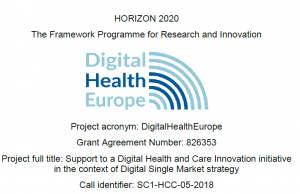Background
In November 2018, during the celebration of the Latin Pharmacy Day, the associations from Italy, France, Portugal, and Spain discussed the possibility of collaborating in a European project to combat the lack of medicines supply. The proposal introduced by the General Pharmaceutical Council of Spain to create a pan-European system, having the Spanish Medicines Supply Information Centre (CISMED) as a reference, was the most valued option and marked the beginning of this alliance.
The General Pharmaceutical Council of Spain has led a project financed by the European Commission, together with national pharmaceutical organizations in Italy, France, and Portugal for the exchange of information on medicines’ lack of supply, with the collaboration of the Spanish Agency of Medicines and Medical Devices (AEMPS).
Launching of the project
This project started in November 2019 and takes as a reference the Medicines Supply Information Centre (CISMED), acknowledged as one of the Best Innovative Practices in the European Union.
Throughout this time, the project has been carried out under the Twinning – information exchange – modality, aiming to explore the possibility of creating an information system that allows the authorities to provide a reliable picture of supply problems at a supranational level.
This is based on existing challenges such as the lack of a harmonized univocal identification of medicines in Europe, the lack of a common protocol for reporting supply shortages and the different national definitions for medicines shortages.
Upon completion of the project in September 2021, it can be concluded that the exchange of data between countries provides very valuable information for the authorities, with enormous potential for making progress in the early detection of shortages and facilitating effective european and international cooperation to mitigate their impact. In addition, the value of pharmacies and the Pharmaceutical Representative Bodies in the face of this public health problem is made visible.
Recommendations for an effective Medicine Shortage Detection System:
- National reporting systems by pharmacies are needed to have an insight into the real situation of medicine availability for patients. There is no better way to have a complete picture of the supply problem.
- These systems would also allow for predictive capabilities and anticipate which lack of supply may become a supply or shortage problem, which is essential to mitigate their effect.
- It would be desirable for these systems to include automatic reporting functionality by pharmacies in real time to ensure timely knowledge and facilitate early and effective action.
- These systems should incorporate an international standard for classification of clinical terms, such as SNOMED CT, in order to exchange comparable information between countries at least at the VMP (Virtual Medicinal Product) level and to be able to carry out meaningful analysis based on the data exchanged.
- International cooperation is essential to mitigate the impact of shortages, which would be facilitated by regular exchange based on a common protocol. For the sake of this project, a regular exchange was agreed upon on an initial monthly basis on supply shortages of duration equal to or exceeding 72 hours in a week by a significant number of pharmacies.
- In the interest of this project, a regular exchange was agreed upon on an initial monthly basis on lack of supplies equal to or exceeding 72 hours within a week by a significant number of pharmacies.
- To improve predictive capacity and develop a comprehensive system, it would also be desirable to integrate other sources of information, as well as the integration of this information into prescription systems.
Comparative analysis
On the other hand, as part of the first part of the project, and on the occasion of the COVID-19 pandemic, it was considered interesting to carry out a comparative analysis on shortages between the countries participating in the project. The main conclusions of this analysis were as follows:
- Despite the different degree of detail of the information shared by the different countries participating in the project, a first approach to the data through an exploratory analysis discovers common patterns in medicines with supply problems and distinctive features of each country.
- Thus, in November 2019, supply problems in medicines indicated for the Nervous system, the Cardiovascular system and the Alimentary tract, and in medicines indicated for obstructive respiratory tract disease and ophthalmological medicines stood out.
- When analysing the data in May 2020, the effect of the international health alert for coronavirus leaves traces of medicines with supply problems, showing similarities and differences in the impact of the pandemic in each country at this level.
- It is the medicines used for the nervous system that have experienced the greatest increase in the incidence of shortages in all countries, especially analgesics, antidepressants and anxiolytics in Portugal and Spain.
- However, medicines indicated for the Respiratory system have shown different behaviour depending on the country, perhaps due to the different actions at local level during the month of May. Thus, Portugal and Spain again showed a decrease in the supply of these medicines, while in Italy and France the supply of these medicines increased. The same is true of the shortages of medicines containing hydroxychloroquine , which have been used in some of the phases of the COVID-19 pandemic, with supply incidents in Italy and Spain and absences in Portugal and France in May 2020.
- Finally, in general terms, it can be said that the number of reports of supply shortages is decreasing in all countries, possibly due to the change in citizens’ behaviour and habits, as well as the measures adopted by the authorities during the pandemic.
Next steps
Once the first phase of the European project has been completed with the presentation of the results by the General Pharmaceutical Council of Spain at the DHE Summit, and having obtained the interest of other European countries and organisations in continuing the project, a second phase will be undertaken to technically implement a European system for the exchange of information on shortages.


 Medicine shortages are a global and growing problem with a negative impact on citizens, healthcare systems and actors in the supply chain. This problem has worsened during the pandemic and has eventually paved the way for the European Commission to urgently develop a European Pharmaceutical Strategy. In this context, international cooperation is needed to mitigate the impact of this problem with complex and multifactorial causes.
Medicine shortages are a global and growing problem with a negative impact on citizens, healthcare systems and actors in the supply chain. This problem has worsened during the pandemic and has eventually paved the way for the European Commission to urgently develop a European Pharmaceutical Strategy. In this context, international cooperation is needed to mitigate the impact of this problem with complex and multifactorial causes.